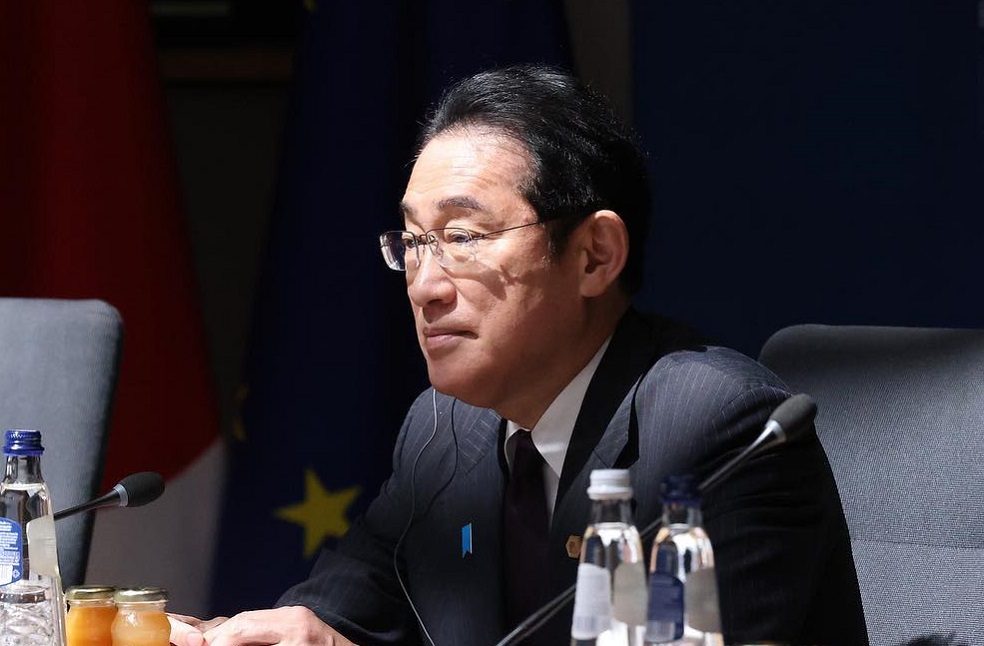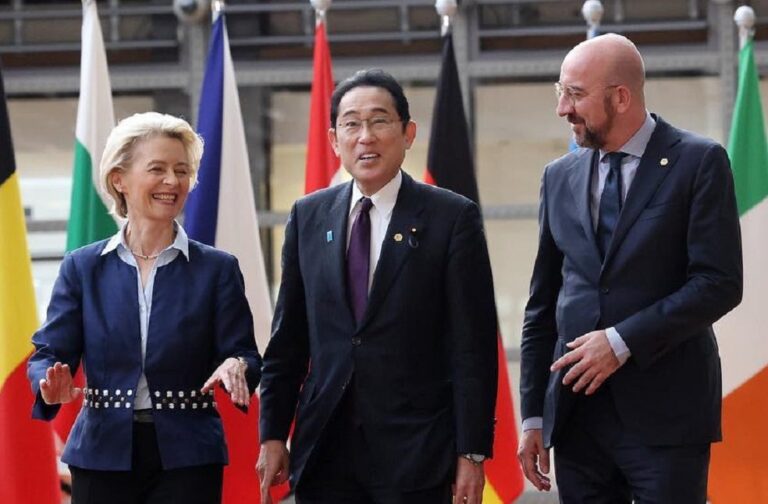Japan: The European Union has lifted restrictions on Japanese food imports imposed after the meltdown at the Fukushima Daiichi nuclear plant. The move comes weeks before Japan is expected to start pumping wastewater from the facility into the Pacific Ocean.
China and other countries have threatened to further restrict Japanese seafood imports if the water discharge goes ahead.
The EU announcement came after talks at a summit in Brussels between the European Council President Mr. Charles Michel, the European Commission President Ms. Ursula von der Leyen, and the Japanese Prime Minister Mr. Fumio Kishida.
The EU’s decision to lift all remaining restrictions, possibly next month, comes days after the International Atomic Energy Agency (IAEA) approved Japan’s water release plans in a key safety review, saying the move would have “a negligible radiological impact on people and the environment”.

The Commission remarked that the restrictions would be fully lifted, reportedly next month, and added that Japan would continue to monitor produce for radioactivity.
“This will help drive forward the reconstruction of the devastated areas and is something we appreciate and welcome,” Mr. Kishida told reporters.
The EU’s decision is seen as part of an attempt to make progress on the removal of Japanese trade barriers to EU beef, fruit, and vegetables, whose access to Japan is limited by food safety rules.
Russia’s consumer protection agency noted that it would step up supervision of marine products imported from Japan.
Japanese officials have observed that the treated water will be diluted so that tritium levels are one-fifth of the concentration permitted under the country’s safety standards before being released into the sea. The operation is expected to take 30 to 40 years.



